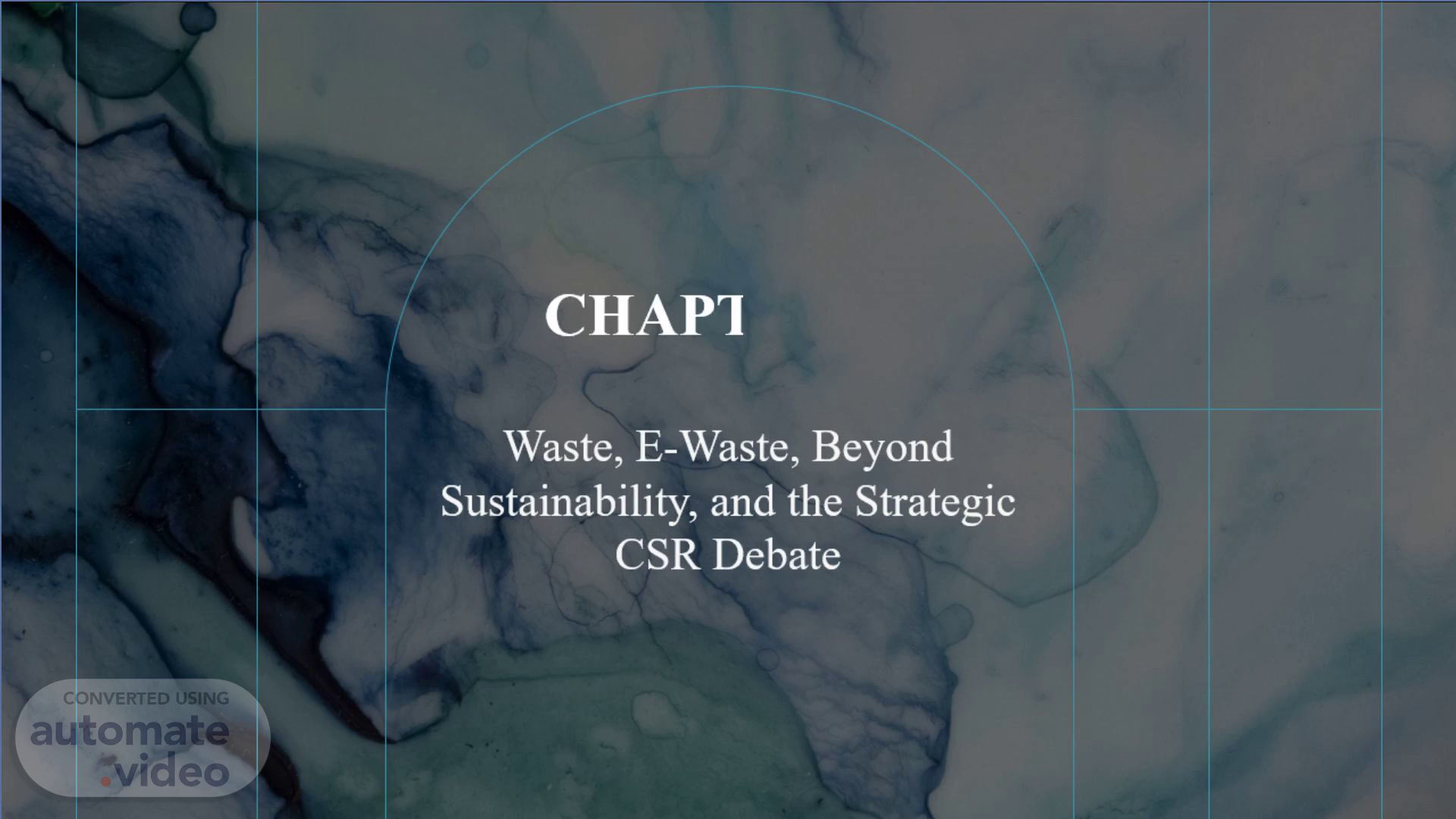
Waste, E-Waste, Beyond Sustainability, and the Strategic CSR Debate
Scene 1 (0s)
[image] Cloudy oil paint art. Waste, E-Waste, Beyond Sustainability, and the Strategic CSR Debate.
Scene 2 (10s)
[image] Cloudy oil paint art. This paper is on some of the most critical issues facing sustainability-including waste, e-waste-and sustainable development. Insights herein will be derived from David Chandler's "Strategic Corporate Social Responsibility: Sustainable Value Creation." The need for integrating CSR into business and organizational strategies is paramount when grappling with global environmental issues as well as social imperatives. The report suggests that there should be a transition to a circular economy, the responsible management of technological waste, and a sustainable mind-set within businesses. Adoption of CSR principles can lead to meeting environmental standards but also innovation, stakeholder trust, and resilience in the face of future challenges..
Scene 3 (40s)
[image] Cloudy oil paint art. Probably, the most pressing global issue right now is waste management. There is an exponential growth in e-waste from constantly increasing electronic devices. Waste is a growing industrial, consumer, and health concern and has to be given prompt attention. Companies are called to generate as little waste as possible and recycle as much as possible, reuse what is reusable, and rethink the product life cycle. E-waste presents a separate challenge because it contains dangerous materials that must be managed and recovered for valuable recyclable resources. Companies must embrace practices such as the Extended Producer Responsibility, which charges producers with the post-consumer cycle of their products, recycling activities to recover useful materials, and consumer education through campaigns to dispose of electronic waste properly..
Scene 4 (1m 15s)
[image] Cloudy oil paint art. The concept of "beyond sustainability" is integral to CSR strategies in modern businesses. It goes beyond just mere compliance with environmental regulations; companies are now being nudged toward adopting proactive approaches like the circular economy, which would design products to be reused, repaired, or recycled, reducing waste. This approach also enhances business operations by improving sustainability, reducing environmental footprints, and creating value for stakeholders. By integrating sustainability into the company's core strategies, organizations can respond to growing demand from consumers to operate responsibly as well as make sustainability an advantage in terms of competitiveness through innovation, stakeholder engagement, and using CSR to solve global problems on environmental and social grounds..
Scene 5 (1m 46s)
[image] Cloudy oil paint art. Several key recommendations that conclude this report are outlined for businesses seeking to add CSR into their business processes. First, companies should be striving towards a circular economy by making products designed with end-of-life in mind, as well as recyclable, repairable, and reusable. Improving e-waste management programs through better education of consumers and stronger EPR frameworks is the second point. Business investment in regenerative practices that restore and replenish natural resources is third. Sustainability should be integrated within the business strategy as a means of long-term value creation. Finally, integrating CSR into business policies not only creates an opportunity for businesses to deal with global waste and e-waste challenges but also establishes shared value, contributing to environmental conservation and societal welfare. Strategic sustainability and innovation, coupled with a spirit of collaboration, can have companies adjust to the dynamics and lead the way into a sustainable future.